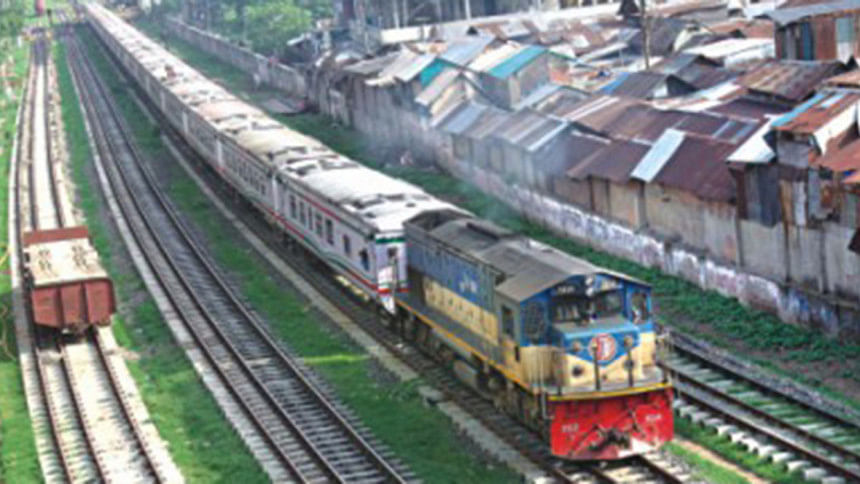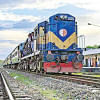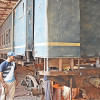Loss-ridden railway set to hike fare

Bangladesh Railway is going to jack up the fares for passengers and freight in a few months.
However, the move would have little impact on the around Tk 900 crore annual losses as it would bring in only an additional Tk 45 crore annually once the new fares come into effect, railway officials say.
According to the fare-hike plan, which the parliamentary standing committee on railways endorsed at a meeting at the Jatiya Sangsad Bhaban yesterday, passenger fares would go up on different routes between Tk 20 and Tk 30 in the lower classes and between Tk 75 and Tk 135 in upper classes.
The fare of lower class like shovon chair on Dhaka-Chittagong route would be Tk 345 from the current Tk 320 while the fare of upper class like AC chair would be Tk 654 from the present Tk 610.
The fare for a 20-feet wagon between Dhaka and Chittagong Port would be raised by Tk 700.
This is the second time the government is raising the fares in four years.
Terming the hike logical, Railway Secretary Feroz Salah Uddin said train fares had not been raised timely in the past in accordance with the hikes of fuel prices and the salaries and benefits of railway employees.
“We are not thinking about making profits. Our target is to minimise the losses,” he told The Daily Star, adding that they would propose the government for minimum fare hikes every year, instead of increasing it after a long gap.
Apart from reducing the losses, he claimed that the hike would also help improve services.
After about 20 years, fares of both passenger and freight were raised by 50 percent in October, 2012, to improve services and reduce railway's loss, which was Tk 800 crore a year then.
But the losses kept on piling up due to high fuel prices, mismanagement, passengers travelling without tickets, and corruption in the railway.
The losses would increase further due to recruitment of several thousand employees and the implementation of a new pay-scale for government officials and employees.
Talking to this newspaper, many passengers condemned the move.
Israt Jahan, who regularly travels between Dhaka and Chittagong, said overall train services had not improved as promised by the authorities while hiking the fare in 2012.
She believes passengers would not get the benefit of planned fare hike unless services were improved with adequate number of modern trains and their operation on time.
Experts and some former railway officials said fare hike should not be the only way to increase revenue and that authorities should open new avenues of income.
They said the railway could easily earn a lot just by operating freight trains on different routes, especially the Dhaka-Chittagong port. This opportunity was not being availed as the railway lacked adequate lines, trains, engines, and wagons, they added.
Currently, 339 passenger trains and 30 freight trains operate on 38 routes across the country.
They suggested that the authorities stop passengers from travelling without tickets, and prevent system loss and ticket scalping.
A number of railway development projects were underway but their implementation pace was slow for which rail services did not improve, they said.
The railway secretary said they were buying new carriages, wagons and locomotives to improve overall services.
In the JS body meeting, the parliamentary watchdog recommended setting up a specialised university on rail communications and setting up railway engineering department in government and private engineering universities.

 For all latest news, follow The Daily Star's Google News channel.
For all latest news, follow The Daily Star's Google News channel. 








Comments